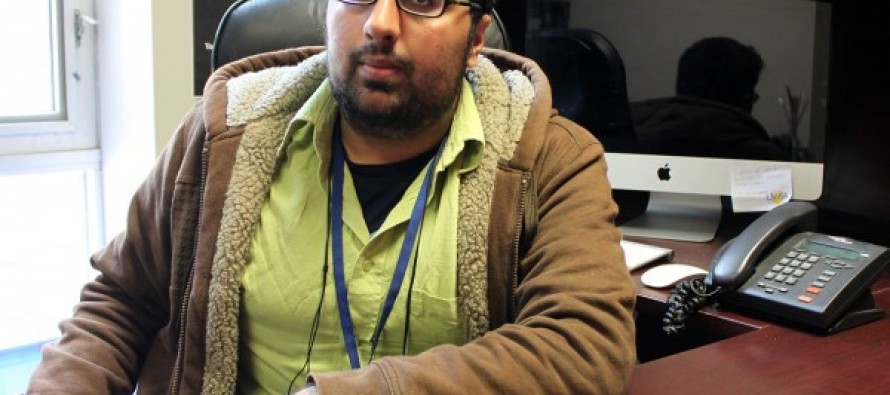University of Windsor to Reimburse Students


Mohammad Akbar, Vice President of University Affairs, sits in his office Sept. 24, 2012 at the University of WIndsor. Akbar helped advocate for students and raise awareness about the fees wrongfully charged for online access codes. Photo by Chris Richards
by Chris Richards
Thousands of students at the University of Windsor will be receiving refunds for purchasing online course material the university was supposed to provide.
The university will be refunding an average of $70 to over 3,000 students who were required to purchase codes in order to access online material, along with mandatory assignments, tests and quizzes used to calculate and administer their grades.
After charging students for years, the change at the university came about after a clarification of tuition policies by the Ministry of Training, Colleges, and Universities on July 8 2011. Three months earlier, the Ontario Undergraduate Student Alliance had also published a policy paper outlining what fees could be charged to students. University students brought the issue to the attention of the University of Windsor Student Alliance this past month hoping to have the fees eliminated.
Mohammad Akbar, Vice President of University Affairs at the UWSA, was first to help raise awareness about the issue with an informative post on the UWSA Facebook page. He said once the issue was made known to administration, they acted quickly to fix it.
“First of all, professors were largely unaware this was an issue and administration was quick to handle it and we’re greatly appreciative of that,” Akbar said.
While applauding the quick action of administration, however, Akbar still thinks it should have come sooner.
“It was clarified in July 2011, so it was very specifically stated at this point that this is not allowed,” he said. “At that point, it should have been passed around to all teachers and at that point should have been dealt with. This is a big win for students across faculties. The fact is it affected 3,000 students.”
Unable to give specific names, Akbar said there are many other Ontario universities still charging students for access codes.
The fees levied for the access codes fall under the category of compulsory ancillary fees, which is any fee that is separate from the tuition a student must pay in order to enroll in, or successfully complete any credit course. Because the access codes are necessary for students to be able to take tests and complete assignments online, the fees should have fallen under the university’s operating budget.
In a press release published by the university on Sept. 20, university president Alan Wildeman called the problem an “oversight” and said a resolution was reached quickly.
“In the summer of 2011, all universities in Ontario received further instructions from the Ministry of Training, Colleges and Universities regarding what charges can be included in ancillary service fees,” Wildeman said in the release. “During that time we were developing the fee structure for the current year, and it was an oversight on our part that access fees for online materials could no longer be included. This came to our attention just this week, so we quickly found a solution for our students.”
In her fourth year completing a double major in biology and psychology, Alicia Trepanier, 21, completed her first two years at Carleton University in Ottawa. Trepanier says the access code fees were new to her when she transferred to Windsor.
“I never had to pay for these online access codes when I was attending Carleton,” she said, “which is why I was really surprised when I came here to Windsor because they do that frequently and I had never come across that before. I read an article last year outlining the fact that these were illegal, so I was really upset they were still doing it,” she said.
According to The Ontario Operating Funds Distribution Manual, which governs the fee structure for Ontario universities, the current regulations regarding compulsory ancillary fees were established in 1987 and edited in 1991, meaning access codes should have since fallen under operating budgets.
“I’m really disappointed with (the university) because we pay so much money to go there in the first place,” Trepanier said. “It’s really discouraging when they have to nickel and dime you for everything.”
The university will be refunding approximately $210,000.


